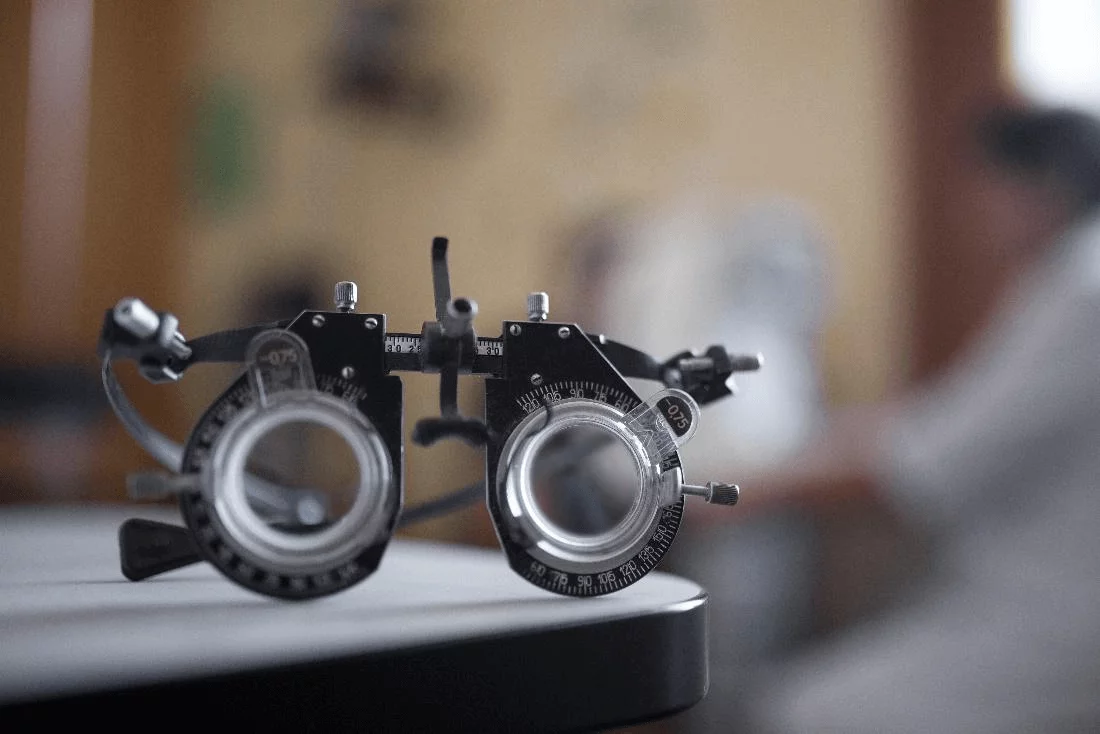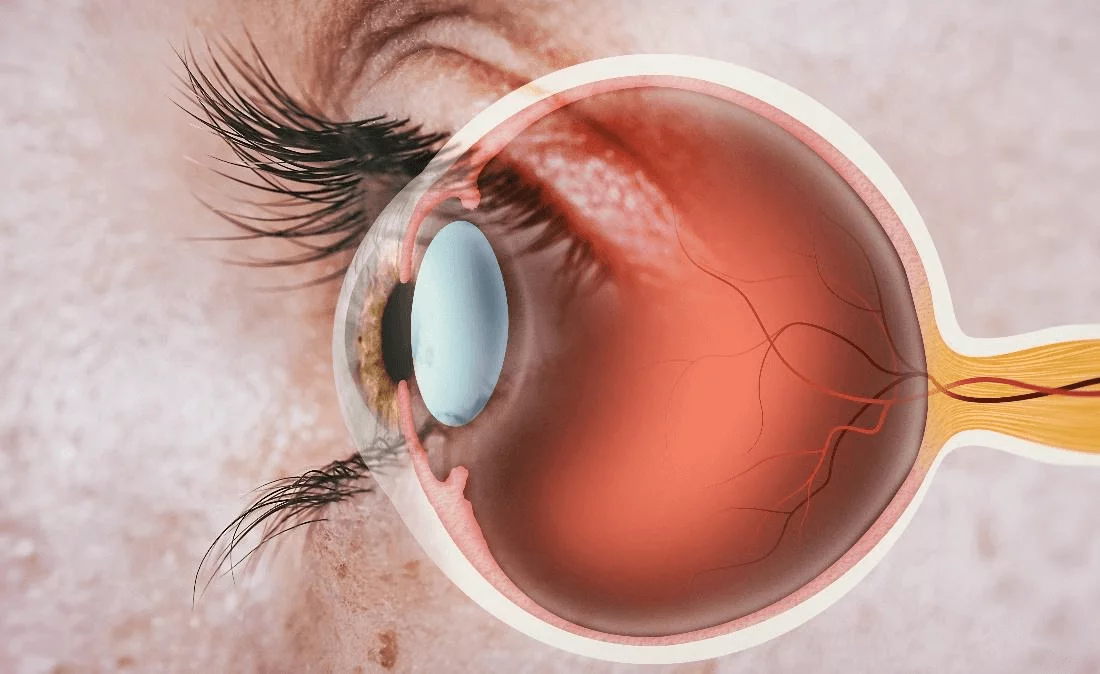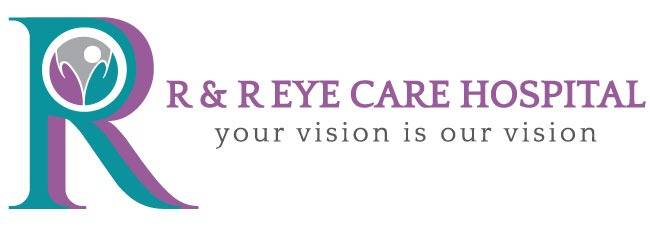Retina Test
As a common person, we carry a generalized perception that eye tests are done only to check whether we need power glasses or not. However, the eye examination goes way beyond the visual acuity tests. Eye tests are especially important if you have diabetes which affects many areas of a person’s body, including the eyes.


Retinal eye examinations are more important for people with diabetes because high blood sugar tends to damage the walls of small blood vessels in the eye. These vessels might develop clots, leak, thicken, or grow abnormal vessels like neovascularization Most of us avoid going for regular eye tests because the symptoms are mild initially, which leads to bigger issues in future. This is why it is important to go for a regular retina test, i.e., at least once a year, to detect eye problems in the earlier stages. Before moving forward to read more about the diabetic retinopathy test, let’s first understand the fundamentals of retina.
What is Retina?
The retina can be defined as the back screen of our eye wherein all the images are projected, which means that the retina is responsible for our vision. In case the retinal nerves are damaged for some reason, the retina fails to send proper signals to the brain leading to unclear or disrupted vision.

There are numerous retinal conditions, but most of them can be treated if detected in the earlier stages. This is why eye tests for diabetic patients are suggested to avoid serious complications. Now that we are clear with the definition of the retina let’s read about diabetic retinopathy.
Diabetic Retinopathy
Diabetic retinopathy is an eye condition caused by high blood sugar that leads to vision loss and even blindness if not diagnosed and treated in time. If you have diabetes, it is especially important to get a comprehensive diabetic retinopathy test; this one step can help you protect your vision.
Moreover, managing your diabetes by keeping your sugar levels in check can also be helpful. Including healthy practices in your lifestyle such as exercise, healthy eating, and regular sugar tests can also help delay and even prevent vision loss.
Causes of Diabetic Retinopathy
When you have diabetes, your blood sugar levels are usually high. This can lead to damage of small blood vessels that are helpful in nourishing the retina. Consequently, once the blood vessels are damaged, the eye attempts to grow new ones, but these tiny blood vessels do not grow properly and tend to leak.
When Should You Go for Diabetic Retinopathy Test?
Like many eye related problems, patients do not experience any signs of diabetic retinopathy. There might not be any vision changes until the condition gets worse. In some cases, minute symptoms come and go, making it barely noticeable.
However, as the condition gets severe, the individual experiences partial or sometimes complete blindness. We have listed some symptoms for you:
1. Blurred or Fluctuating Vision: In case you notice that you are unable to focus on a specific object within the field of your vision or experience blurriness when trying to focus on a single object, it’s time to get a diabetic retinal examination.
2. Floating Spots or Strings in Your Vision: If you notice spots or floaters that seem to move across your eyes, it is best to consult your eye doctor and get a retina test done. These disruptions can be caused by retinal holes or retinal detachment.
3. Trouble Seeing Distant Objects: Blurry vision can be defined as the loss of sharpness, which makes objects around you hazy or blurry. Many factors are responsible for blurry vision, so it’s important to consult a doctor for a retina test.
4. High Blood Sugar/Blood Pressure: As the name suggests, diabetic retinopathy is centrally caused by the presence of high blood sugar or high blood pressure.
5. Night Blindness: If, till now, you have not experienced night blindness, but suddenly it starts becoming difficult to see at night, immediately consider a diabetic retinopathy test.
Also in addition to this, retina test costs are nominal and one can easily afford it. Moving further, let’s read about diabetic retinopathy tests to avoid vision loss.
Diabetic Retinopathy Treatment
If you have non-proliferative or moderate diabetic retinopathy, your doctor might not suggest getting the treatment right away. However, they must closely monitor your eye condition with the help of a retina test to determine when you should get the treatment.
Work closely with your diabetologist or health coaches to figure out ways to improve diabetes management. Controlled blood sugar will be helpful in slowing down the progression of your condition.
However, you will need immediate treatment if you have proliferative or severe diabetic retinopathy. Depending on your overall condition, which can be determined by a retina test, your doctor will suggest a treatment option. The options might include:
1. Injecting Medications: The vascular endothelial growth factor inhibitors are injected into your eye to help decrease fluid buildup or stop the growth of new blood vessels. These medicines are injected using topical anesthesia and might cause discomforts like mild pain or burning sensations.
2. Photocoagulation: It is a focal laser treatment that can stop or slow down the leakage of blood and other fluids in the eye. This treatment is usually done in your doctor’s clinic in a single session.
3. Panretinal Photocoagulation: This treatment is known as the scatter laser treatment which can shrink abnormal blood vessels. It is generally treated in two to three sessions. Your vision might stay blurry for a day after the treatment.
4. Vitrectomy: In this treatment, your doctor would make a tiny incision into your eye to remove the blood or scar tissue that has been tugging on the retina. This is done in operation theater.
Treatment for diabetic retinopathy is almost always successful. However, since diabetes is a chronic condition, there are chances of you experiencing the symptoms again. This is why it is important to frequently visit your doctor to undertake retina tests to stay aware and take necessary measures.
R&R Eye Care Hospital: Offering the World Class Eye Treatment
Founded in 2004, R&R Eye Care Hospital has been actively contributing to the field of ophthalmology with the in-house development of surgical techniques. With technologically advanced treatment tools and experienced doctors, the hospital has been treating numerous eye diseases like diabetic retinopathy, glaucoma, cataract, keratoconus, and more.
FAQ
-
Is a retina test necessary?
A retina test is important if you are at elevated risk of retinal illnesses. Your doctor will especially advise you to go for frequent retina tests if you have diabetes. However, it is important to remember that a retina test is not a substitute for regular eye checkups.
-
Is the retina test painful?
The patients are put dilating eye drops, with the help of a slit-lamp or indirect opthalmoscopy, your doctor examines your retina .retina test does not hurt.
-
Why is a retina test done?
A retina test allows our eye doctors to see signs of retinal eye diseases. The tests make it easier for doctors to interpret any underlying condition.
-
What is retinal checkup cost?
Retina eye test cost depends on location, clinic and number of tests performed for an individual hence ranging roughly from Rs. 500 to Rs. 3000.
-
Where can I find diabetic retinopathy test near me?
Opticians appointed at eye centers or hospitals have the equipment to perform this test. You can visit our location page to find our center nearest to you.


